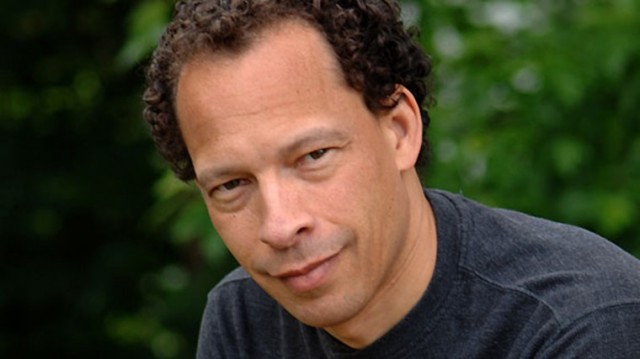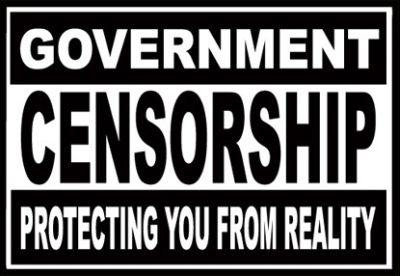
Censorship is a sensitive issue.
In my previous post, I explained how a group of Surinamese individuals in Holland publicly burned Lawrence Hill’s novel, “The Book of Negroes.” This was an act of censorship as they were offended by the word “Negroes.” However, they failed to see the bigger picture.
Personally, I consider it foolish that these Surinamese Dutch covet censorship towards “The Book of Negroes.” To me, individuals who are offended by the word “Negro” in a title is identical to a Jewish person offended by the swastika on a book cover. In published literature, these words and symbols are not meant to irritate, it is meant to prevent the world from forgetting our horrible history. Even Lawrence Hill stated that, “… there is sometimes room to use painful language to reclaim our own history.” (Hill 29)
Is widespread censorship ever acceptable? Literature is generally banned due to sensitive themes. Yet, these sensitivities address the cause and effect of problems in society. My completely awesome (and charming) Grade 12 English teacher told us a few weeks ago that Richard Wagamese’s beautiful novel “Indian Horse” is banned all over the world. Why? It deals with rape. To be precise, the story deals with a priest who rapes an Aboriginal boy in a residential school.
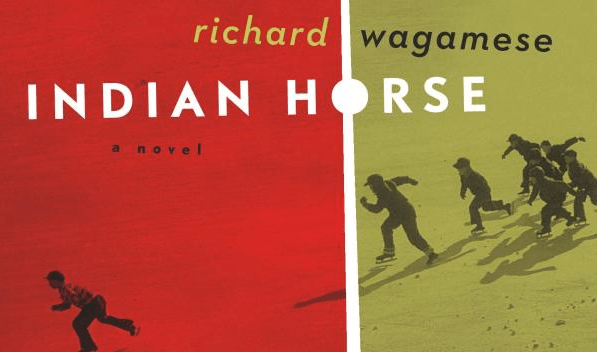
The second I heard that people even considered censoring Indian Horse rather upset me. Clearly, they overlooked the purpose of the novel. Pedophilia within residential schools was an enormous problem that we can not forget or have repeat itself. As a matter of fact, this continues to be an issue in the Catholic church today.
Censorship disregards the message in novels. “Lord of the Flies” has been banned since it promotes putting yourself over the greater good. Yet, the novel shows how disastrous the result is.
“The Outsiders” has been banned since it encourages violence. The novel shows how their violent acts result in them becoming outsiders from society.
Censorship is rather useless as well in our developed world. “The Hunger Games” was censored over desensitization to murder and promoting violence as entertainment. However, graphic violence is already used in mainstream entertainment, such as in boxing, wrestling, video games, television shows, movies and many other pieces of literature.
Censorship is an indication and promotion of an autocratic society. There’s an interesting quote by English poet, John Milton, who claimed that, “he who destroys a good book, kills reason itself…”. All works of literature address pivotal ideas, messages, opinions and problems from the author. Silencing their works is silencing the author, which denies the human right of free thought and expression. Lawrence Hill demonstrates it perfectly: “I wouldn’t want any book banned, pulled, removed or burned. Period. We can hate them, dissect them, learn from them or praise them, but we need to leave books alone and let readers come to terms with them” (Hill 13).
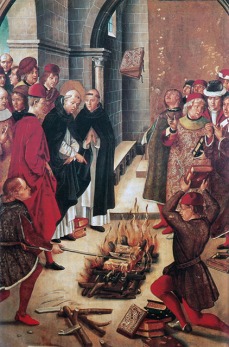
Within the article, Hill brought up how Nazis and the Spanish Inquisition censored literature to protect their ideologies. Hill said, “The act seems to say: ‘You will not be tolerated. Your ideas will not be discussed. We must protect society from your toxic mind…” (Hill 7). Censorship is always an indication of an authoritarian system. It simply protects the ideals of a small group of people who are too stubborn to debate or respect the ideas of others. That is not the purpose of literature. That is not a free society.
During the Nazi book burning, Dwight D. Eisenhower gave a speech. He said, “Don’t join the book burners. Don’t think you are going to conceal faults by concealing evidence that they ever existed. Don’t be afraid to go to your library and read every book, as long as that document does not offend our own ideas of decency. That should be the only censorship.” Eisenhower states that society should self-censor. No one person or organization should be permitted to ban literature on behalf of everyone. Of course, if this were to occur, the public may be exposed to texts that directly promotes discrimination, enslavement, hatred or harm to an authentic group of people. If these novels were accessible, most people would self-censor and refuse to purchase it. Furthermore, most publishing companies would refrain from releasing these novels into the world due to the atrocious reputation they would receive.
Censorship truly is a sensitive issue, as the topic has been debated for decades. But I believe that we can never say “this is wrong” and then shut something down. Everyone has their opinion. Let’s express it. Let’s discuss it.
Let’s never burn it.
BIBLIOGRAPHY
Berruguete, Pedro. “Saint Dominic and the Albigenses.” University of Wisconsin-Milwaukee, Golda Meir Library <http://uwm.edu/libraries/exhibits/burnedbooks/>.
“Book Burning, 213 BC-2011 AD.” University of Wisconsin-Milwaukee. Golda Meir Library. Web. 9 Oct. 2017. <http://uwm.edu/libraries/exhibits/burnedbooks/>.
Liem, Shnane. “Indian Horse.” Vancouver Weekly, Vancouver Weekly, 1 Mar. 2012.
<http://vancouverweekly.com/indian-horse-by-richard-wagamese/>.
Swinhoe, Dan. “Government Censorship. Protecting you from Reality.” IDG Connect,
IDG Connect Ltd, 25 Nov. 2016.

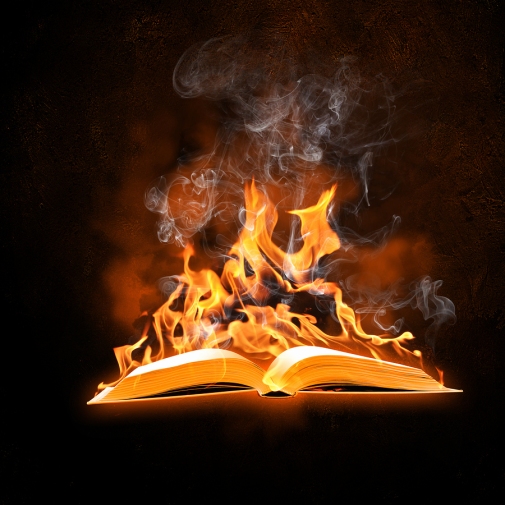

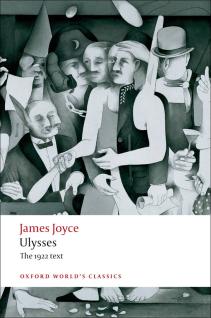
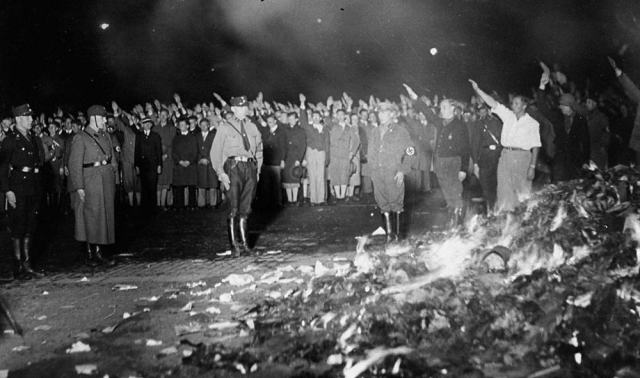
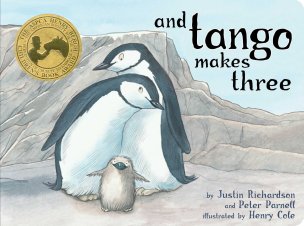 This argument is emphasized when Hill states that, “Between the Net and television and film, there is something […] to offend virtually every person on the planet. But heaven forbid that our children read a book about gay penguins in the Central Park Zoo” (Hill 14). Hill is referencing the book, “And Tango Makes Three,” which demonstrates a homosexual relationship between penguins. Of course, individuals were offended by this novel and coveted its censorship. Hill expresses “heaven forbid” as a sarcastic hyperbole to show the preposterous reasoning behind those individuals.
This argument is emphasized when Hill states that, “Between the Net and television and film, there is something […] to offend virtually every person on the planet. But heaven forbid that our children read a book about gay penguins in the Central Park Zoo” (Hill 14). Hill is referencing the book, “And Tango Makes Three,” which demonstrates a homosexual relationship between penguins. Of course, individuals were offended by this novel and coveted its censorship. Hill expresses “heaven forbid” as a sarcastic hyperbole to show the preposterous reasoning behind those individuals.